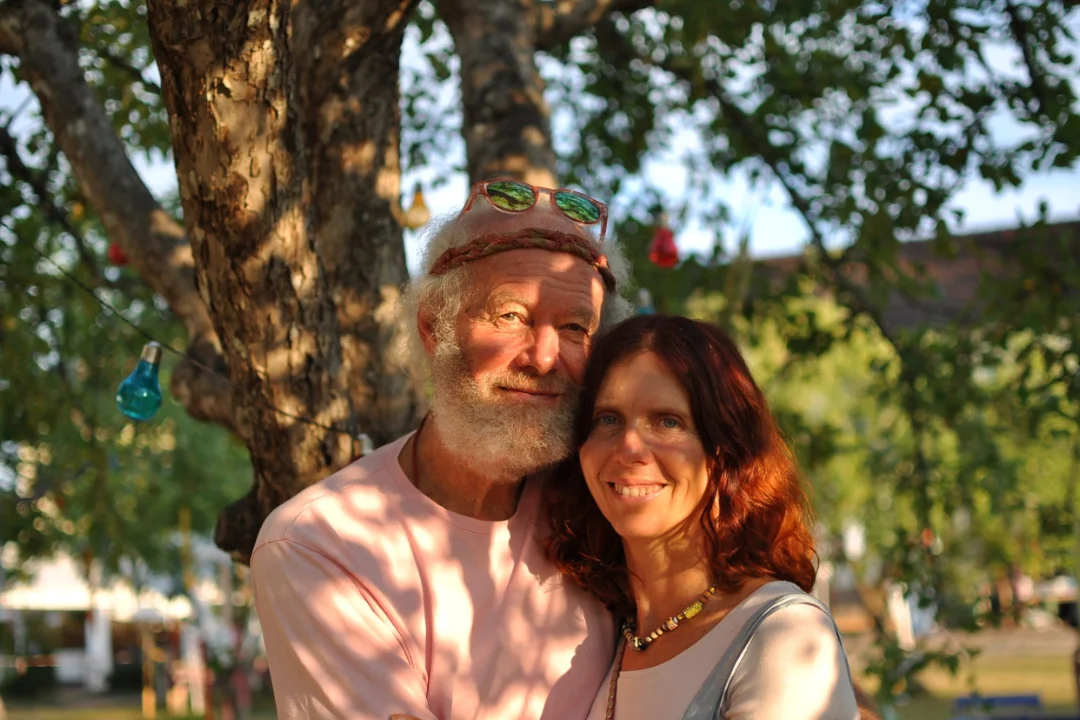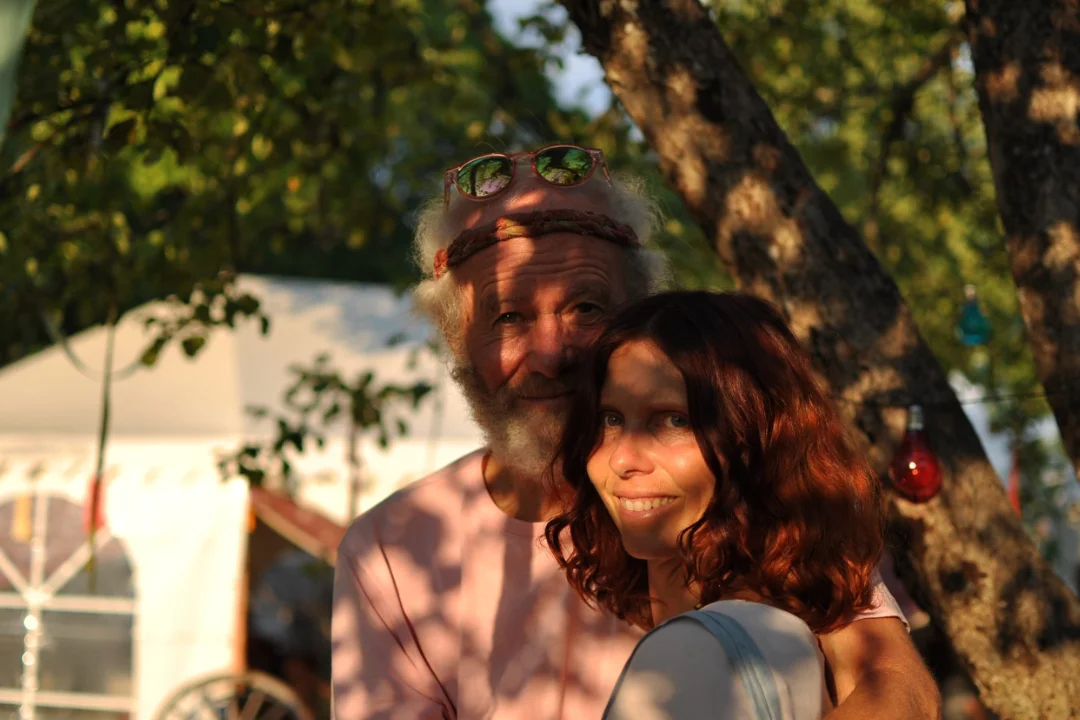Unity in diversity
Blake and Ingela’s story
Photo & text: Berit Indset
It’s like they almost glide over the grass as they enter Ängsbacka’s main courtyard in low evening sunlight, both wrapped in soft pastel colours. Hip. Soft. Wise. At home. It feels like the chief and his crone just came to the fireplace to meet their fellow tribesmen.
If anyone can tell you about Ängsbacka, it’s these two. They’ve been around a while and they have seen how both Ängsbacka and the extended community has grown and changed over the years. They’ve found the closest thing they can call home here. In many ways their perspectives on the extended community differ a great deal, but the passion and love they feel for this place is equally strong. They are both widely known both locally and among Ängsbacka’s festival participants for the workshops and courses they do both together and separately.

When you look into Ingela’s eyes and listen to her voice, it’s like the very earth underneath you softens. I feel my breath going deeper and my pace slowing down. There is no eagerness here, no hasty half sentences or interruptions, it’s like she feels more than she thinks. Lucky are those patients that get to be met by Ingela in her day job as a nurse in a nearby town. She came to Ängsbacka for the first time in 1999 and have participated in numerous celebrations, workshops and roles here. She hasn’t missed a single year of the annual No Mind festival since she first arrived.
“I fell in love with this place right away. It was magical then and it is magical now.”
She is not the only one that speaks of the deep and meaningful connections that the women in this community have built up where they celebrate birth together, meet in women’s circles and support each other in everyday life. «It was when I tried to move away to Stockholm for two years that I really realized how different things are here. I realized how beautiful and special it is to live here. I love Ängsbacka and the community here.» Her eyes glows and a kind of playful beam of enthusiastic energy shoots from her. Almost like a young girl blushing over a love affair.
“It’s like a big family. For me it really is.”
Blake’s words are as thick as they are thin. Simple, yet dense with meaning and intent. It’s like your ears understand that it’s time to listen. Rumor has it he writes well too. You can pick up one of his 14 books and find out yourself. In 1999 he had sold everything he owned back in his home in the USA, bought a small, French car and started a more nomadic lifestyle. A job offered through a Danish friend and publisher brought him to Scandinavia where soon heard about Ängsbacka. He went up for his first festival in 2001. He was very impressed.
Blake speaks about how he would miss the rhythm of this place if he were to move. He talks of the importance of rhythm and how the festivals, ceremonies and celebrations help create that through the whole year, and he shares how this quiet town, due to Ängsbacka has a vitality to it because of the constant influx of openhearted people and ideas that run through the centre and hence also affects the town.
“It’s almost like a university town.”
The two had met several times earlier but connected deeply almost 5 years ago. “In many ways it’s a miracle we’re still together” Blake says. They both laugh together in a sweet way, the laughter hinting not towards the struggle they’ve met, but rather a shared appreciation of what they have shared and continue to share. As to explain this further he adds: “Being in this space is tremendous support, but also a tremendous challenge, you have very deep encounters here and the energy is high.”
“I think the main thing about Ängsbacka and what the energy field here does is it breaks that mentality of criticizing everyone externally of what is not making you happy. When people get that, it really shifts the responsibility. And this is in the energy field here. “

He continues talking about how he feels different perspectives are really respected in the community connected to and around Ängsbacka. His otherwise calm presence fires up a bit when he talks about defending this openness of Ängsbacka. The only few times Blake has felt he have had to really speak up is when someone come and want to politicize change here – trying to force change, to make it represent a minority niche, “rather than the openness of spirit where life and energy is free to happen and where everyone is welcome to come as they are whether in joy or sorrow or anything in between, they are welcome to come and be real. I’m not an official guardian of any sort, put this is what I feel I would want to defend. “
“To me, every festival is an enactment out of the possibility of people really living together in openness, love and freedom. And that happens here. You have all the festivals, celebrations and workshops that bring people together, but what really happens here are the meetings between people, conversations, friendships that are formed – people just coming to love each other. I truly believe that this kind of unity in diversity is the way humanity will go and has to go to survive. “